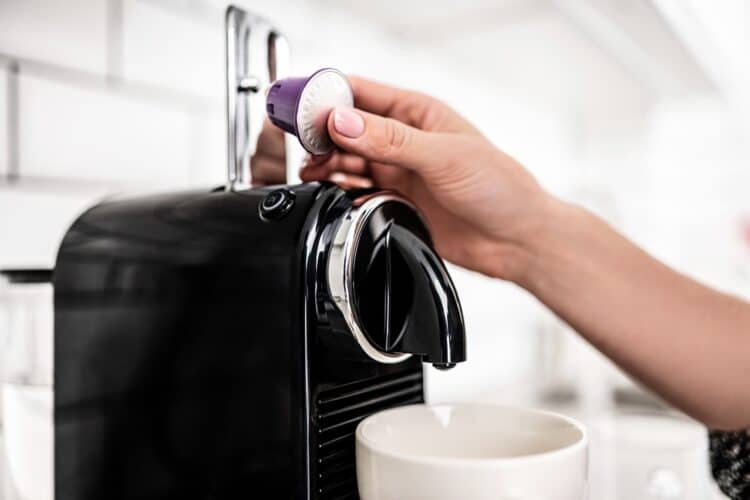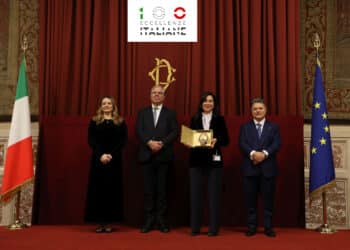Jan-Paul Lommerse, Commercial Director Single Serve Capsules at Menshen, identifies the key rising demands on coffee capsules and what must be done to meet growing consumer expectations.
With more than 25 years of experience in the coffee industry and over a decade in the coffee capsules category, I’ve seen our industry evolve into a global category that shapes how millions of people experience coffee daily. Today, however, we’re facing a pivotal moment. One that requires us to think differently about what success in this segment looks like.
On the surface, the growth numbers look strong. The global coffee capsule market is expected to surpass US$26 billion by 2033, powered by demand for convenience and premium in-home coffee. Machine ownership is high. Consumers still love single-serve and private-label capsule filling is in high demand.
But behind this expansion lies a critical shift in what buyers – especially brands – are looking for. Filling machines and automation lines are no longer the differentiators they once were. Capsule producers now face a strategic choice: evolve from suppliers to solution-providers, or risk becoming commoditised.
Sustainability as the new baseline
Buyers are being pushed by consumers, retailers, and regulators to offer more eco-friendly options. Brands now demand environmental flexibility and those who can’t deliver sustainable options at scale will be left behind as regulatory pressure intensifies.
At Menshen, we’ve understood that sustainability is no longer a differentiator, it’s the entry ticket. With new European Union directives on packaging waste and growing consumer demand for eco-friendly solutions, recyclable and compostable capsules have become non-negotiable.
The real challenge is balancing material innovation with performance: ensuring that a capsule still delivers freshness, crema, and flavour consistency while meeting end-of-life requirements. Those who can achieve this at scale will define the future standard.
Differentiation without compromising competitiveness
Achieving a balance between innovation and cost competitiveness is imperative. While the market seeks differentiation, it must not come at the expense of affordability. Success hinges on timely investments in innovation and the capacity to diversify offerings at compelling price points.
To share the burden of rising costs of new product developments, establishing vertical joint development partnerships may be considered. By collaborating with upstream and downstream partners, stakeholders can reduce individual financial pressures, accelerate innovation, and strengthen supply chain resilience.
Such partnerships not only improve cost efficiency but also create opportunities for co-innovation and long-term strategic alignment.
Personalisation on the horizon
Looking ahead, I believe personalisation will be the next great growth driver. There is rising demand for functional coffee including those containing mushrooms, collagen, or nootropics, and alternative ingredients such as chai, matcha, or adaptogens – as well as single-origin coffees. These products behave differently, require smaller runs, ingredient dosing precision, and different barrier properties.
Brands or capsule filling companies that offer agile production capabilities – like low MOQ runs or ingredient handling for non-coffee formulas – are becoming indispensable to emerging brands. Advances in brewing technology and consumer data can allow us to move beyond strength or origin, into capsules designed for individual taste preferences, health needs, or even time-of-day routines.
Raising the bar through collaboration
Another shift we’re seeing is the steady ‘premiumisation’ of capsules. Consumers are no longer satisfied with convenience alone; they expect authenticity and a sensory experience that reflects the craft of coffee and the value of their favoured brand.
This is why we put intensive collaboration at the heart of our capsule activities. We offer full-stack services to support brands that fill their own capsules and companies that are specialised in filling capsules, in successfully encapsulating the intrinsic values of their ingredients to enable the final consumer a perfect brew.
Speed to market is a service
In a market where trends evolve in months, not years, lead times matter. Brands want to test SKUs fast, enter retail faster, and pivot quickly. Those brands with flexible batching and digital production planning are winning projects because they enable speed, not just scale.
The bottom line
The capsule industry is at a crossroads. To remain relevant, we must continue innovating on three fronts simultaneously: sustainability, premium quality, and personalisation.
Those who embrace this mindset will not only keep pace with change, they’ll set the agenda for the decade ahead. The real winners will be the producers who stop acting like factories and start acting like partners.
This article was written by Jan-Paul Lommerse, who has spent more than 25 years in the coffee industry, including close to 20 years with Pelican Rouge Coffee Roasters in the Netherlands and a decade in the coffee capsule space.
For more information, visit menshen.com





